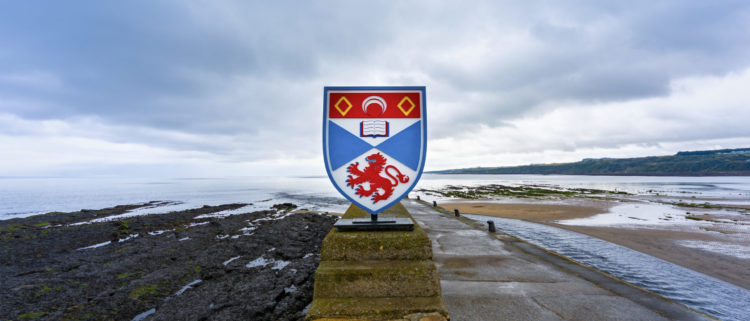St Andrews to lead new ambitious research alliance: making Net Zero Scotland a reality
 The Centre for Energy Ethics at the University of St Andrews has been awarded a £600,000 consortium grant by the Scottish Funding Council to lead a new research collaboration on energy and sustainability, supported by the Universities of Strathclyde and Edinburgh.
The Centre for Energy Ethics at the University of St Andrews has been awarded a £600,000 consortium grant by the Scottish Funding Council to lead a new research collaboration on energy and sustainability, supported by the Universities of Strathclyde and Edinburgh.
The Scottish Research Alliance for Energy, Homes and Livelihoods is one of three new Alliances for Research Challenges (ARCs) that represent a new approach to research collaboration in Scotland, with funding also for alliances for brain health and food.
The energy alliance will connect multidisciplinary researchers with industry and business partners, third-sector collaborators, policy makers, and people across Scotland to help tackle the national challenge of how to become an equitable, climate-aligned Net Zero society.
Leading this alliance is Dr Mette High, Director of the Centre for Energy Ethics. Dr High said: “This research alliance is really important because it embraces the fundamental complexity in achieving an inclusive energy transition by bringing together social, financial, and technical areas of expertise.
“With high rates of fuel poverty, exacerbated during a crushing cost of living crisis, we risk that a Net Zero Scotland becomes a two-tier society that leaves behind those who are already struggling. Thanks to the support from the Scottish Funding Council, we are now in a position to mobilise world-leading expertise and forge new collaborations, anchored in the shared vision of creating a better energy future for all.”
The Scottish Government has committed to the country’s transition to Net Zero greenhouse gas emissions by 2045. This is an enormous societal challenge, reflected in the comprehensive suite of newly established commissions, policies, initiatives, and strategies.
To achieve such far-reaching decarbonisation within this compressed time horizon, the coming decades need to see highly focussed and coordinated action across all sectors in society.
Spanning conventionally siloed sectors of research, this alliance will bring together scholars across arts, humanities, engineering, and the social and natural sciences to deliver new research and insights into energy and sustainability futures for Scotland’s households.
With its ethos of inclusivity and collaboration, it will organise workshops, town-hall meetings, round-table discussions, and other events across Scotland to ensure people’s experiences and voices can help drive change. It will launch its own seed funding schemes and foster a nurturing early-career research community with a broad range of training opportunities. Moreover, it will leverage additional funding in this challenge area to drive forward world-leading research.
Dr High said: “This isn’t only a question of hydrogen boilers versus heat pumps. It isn’t only a technical challenge. It is also a social and financial challenge.
“By working together across disciplines, institutions, and sectors, this alliance recognises the scale of the challenge and will work towards making sure an inclusive Net Zero Scotland becomes more than a pipedream.”
The SFC’s investment over the next four years will enable the researchers to create multidisciplinary, cross-sector teams to strengthen and accelerate bids for major research grants, including funding from overseas.
Helen Cross, SFC’s Director of Research and Innovation, said: “ARCs will make exciting and dynamic links between people, institutions and disciplines. In doing so they will place Scottish research in a strong position to generate new funding through successful bids to research grants in the UK, Europe and beyond.
“The ARCs are also designed to connect the priorities of the Scottish Government with areas of strength within our publicly funded research system.”
Higher Education Minister, Jamie Hepburn, said: “ARCs will connect Scotland’s research excellence to national challenges and will build on our unique collaborative ethos and world-class universities to prime the Scottish landscape to respond to challenge-focused research funding opportunities.
“I look forward to hearing more about the innovative solutions being developed in areas ranging from healthy ageing, quantum technologies, managing our food systems, and energy transition and sustainability as the ARCs progress.”
Issued by the University of St Andrews Communication Office.